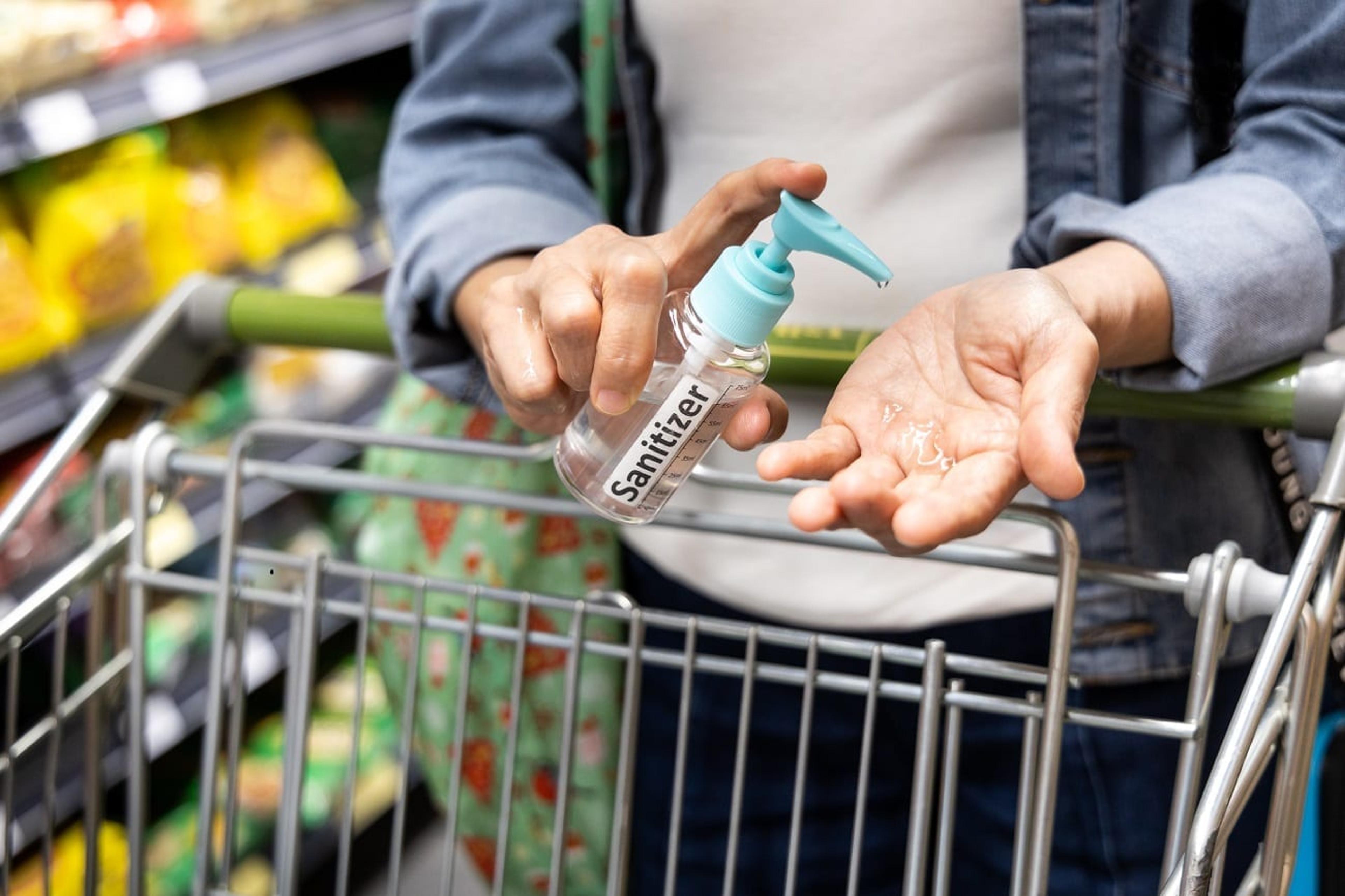
The COVID-19 pandemic has made personal health a priority to minimize the risk of exposure and prevent the spread of the disease. While there is currently a “Stay Home, Stay Safe” order for the entire state of Michigan, certain essential services such as grocery stores, pharmacies and take out restaurants are open for business. While it is necessary to use these services, it’s important to practice basic health and safety guidelines to keep yourself and your community healthy.
At the grocery store, you should:
- Use a sanitizing wipe to clean your cart handles. Even when there is not a global pandemic, you should always wipe grocery carts before touching them. Studies have found bacteria such as E. coli on these surfaces.
- Stay at least six feet away from other people. The biggest risk for transmitting or encountering COVID-19 is coming into close contact with another person.
- Don’t touch your face while out in public. It’s not clear what role food packaging plays in transmitting the virus that causes COVID-19. Yet the World Health Organization advises the virus can be transmitted by touching a contaminated surface and then touching your eyes, nose or mouth.
- Commit to buying items before picking them up. Viruses and bacteria can live on surfaces for multiple days. Only pick up what you know you’ll buy and avoid touching your face in between.
- Pay with a card instead of cash. Going paperless helps to protect grocery store cashiers from encountering any germs you may be carrying and vice versa.
- Sanitize after checkout. This should become routine. Hand sanitizer helps to kill off most viruses and bacteria you may have picked up during your shopping trip.
When storing groceries, you should:
- Wash your hands after unpacking and putting away groceries. At a minimum, you should wash your hands with soap and water for at least 20 seconds.
- Sanitize counters after putting groceries away. Assume every item you purchased could make you sick. Wash and disinfect the spaces they’ve touched accordingly.
- Disinfect aluminum, glass and plastic containers. A study showed the novel coronavirus can live up to three days on plastic and stainless steel. Use disinfectant to wipe down packaging at a dedicated cleaning station in your home, then clean that surface.
- Remove food from outer cardboard packaging. The COVID-19 virus can live on cardboard for up to 24 hours, but is difficult to clean cardboard. The easiest solution is to remove any items carried in cardboard containers (like cereal or eggs) and place them in a new, disinfected container.
- Soak and wash fresh produce. Scrub produce for at least 20 seconds. Soap is not needed.
When ordering takeout:
- Transfer food onto your own plates. Much like grocery shopping, takeout containers can also carry viruses or bacteria. Carefully move food onto a clean plate to eat it safely.
- Use your own silverware. Silverware from a restaurant may have been exposed to any viruses or bacteria in the air and on surfaces it may have touched. Play it safe by using your own clean silverware.
- Throw away the to-go bags and containers. The highly contagious nature of COVID-19 makes all surfaces a possible transmitter of disease. Don’t keep any unnecessary items that have been in a public space.
- If possible, reheat your food. Heat helps to kill bacteria in the food. It’s an extra precaution that may keep you from getting sick.
Experts are also urging people to opt for grocery delivery services instead of in-store shopping as it dramatically decreases the number of people you could potentially encounter. Some grocery stores are offering dedicated shopping hours for individuals who are at a higher risk for COVID-19, including seniors and pregnant women. Remember, in order to flatten the curve of infection each of us needs to limit public interaction as much as possible and take extra precautions. This content has been reviewed and approved by Dr. S. George Kipa, deputy chief medical officer at Blue Cross Blue Shield of Michigan. More from MIBluesPerspectives.com:
Photo credit: ThamKC





